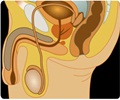Cancer may now be detected in its earliest 'bud' form thanks to a new technique

Beating cancer is all about early detection and new method holds the promise to catch the disease early.
The researchers have constructed an ultra-sensitive nanoprobe that can electrochemically sense as few as four circulating tumour cells, and it doesn't require any enzymes to produce a detectable signal.
"That makes it a very robust system," said Hui Wang who led the research team.
"We showed that it's much less sensitive to pH and temperature than the natural enzyme horseradish peroxidase, a traditional means of enhancing sensitivity."
Cancer can metastasise by releasing tumour cells that are capable of spreading the disease to new parts of the body.
Advertisement
They're tough to find, though. In a billion blood cells, there might be just one circulating tumour cell that could trip an alarm.
Advertisement
Wang's team was surprised to find that the nanoparticles could also catalyse the electrochemical reduction of small dye molecules, such as thionine, even in the absence of peroxide.
The findings were published in the Journal of the American Chemical Society.
There's still a long way to go to get a device into the clinic, but Wang can see the potential of the sturdy inorganic nanoprobes.
"Since the expression levels on the cancer cells are quite different from the normal cells, we can actually identify the cancer cells," he said.
Source-IANS








